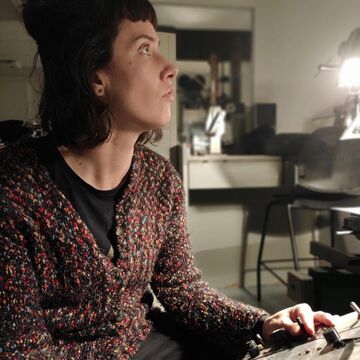

Kera MacKenzie
Lecturer
Contact
Bio
Education: BS (2007) Lesley University & The Art Institute of Boston; MFA (2013) University of Illinois-Chicago. Screenings: International Film Festival Rotterdam, NL; Rencontres Internationales Sciences & Cinémas, FR; Simultan Festival, RO; La lumière collective, CA; Iowa City International Documentary Film Festival; Virginia Film Festival; Spectral Film Festival, WI; That One Film Festival, IN; Florida Experimental Film/Video Festival; The Film and Video Poetry Symposium, CA; Mimesis Documentary Festival, CO; Anthology Film Archives, NY; UnionDocs, NY; the Museum of Contemporary Art, IL; the Museum of Contemporary Photography, IL; Onion City Experimental Film + Video Festival, IL; The Block Museum of Art, IL; the Chicago Underground Film Festival; The Nightingale, IL. Bibliography: Bad at Sports; Cine-File; Newcity Magazine; Chicago Reader; Art in America. Awards: Jury Award, the Chicago Underground Film Festival; Best of the Festival (Jury Award), Onion City Experimental Film + Video Festival, IL; Jurors' Award, That One Film Festival, IN; Individual Artist Support Grant, Illinois Arts Council Agency; City of Big Shoulders Award, Onion City Experimental Film + Video Festival, IL; Individual Artist Program Grant, The Department of Cultural Affairs and Special Events (DCASE).